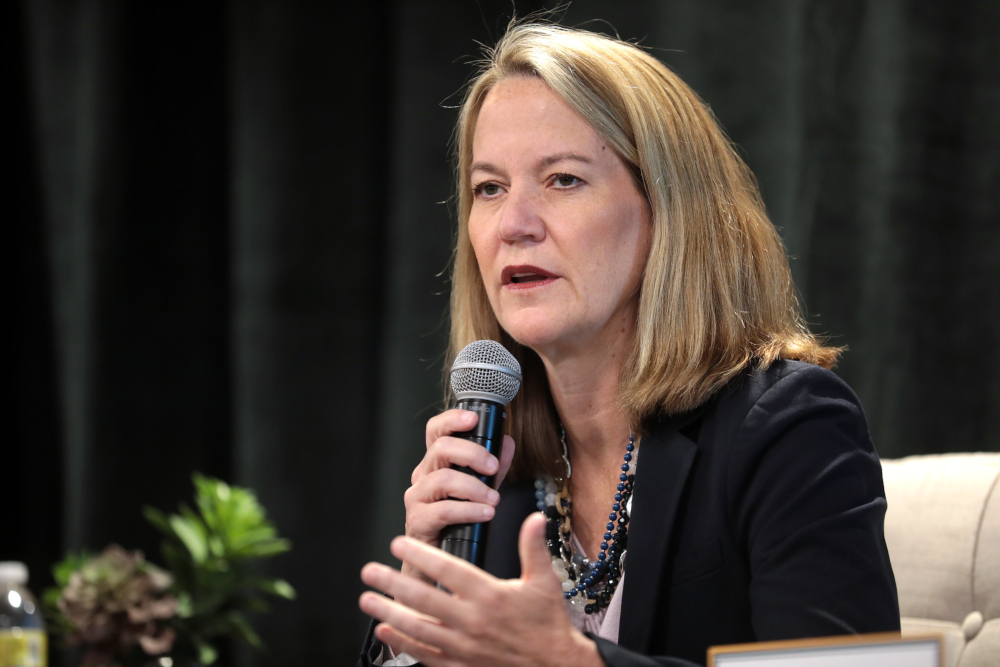Arizona hemp stakeholders say an opinion from the state’s Attorney General clarifying the legal status of intoxicating hemp products could also damage the market for CBD extracts.
In an opinion issued this week, Attorney General Kris Mayes said products containing intoxicating hemp compounds synthetically produced from CBD – sometimes called “diet weed” – fall under rules for Schedule 1 controlled substances.
As such, they may only be sold in Arizona’s licensed marijuana dispensaries, Mayes affirmed. Retailers not licensed by the Arizona Department of Health Services may not sell “high”-producing products containing delta-8 and other compounds, she said.
Such products, sold as alternatives to those containing the more common delta-9 THC that occurs in high levels in marijuana, emerged after the 2018 Farm Bill legalized industrial hemp and its downstream products across the U.S.
Delta-8 gray market
Mayes’ opinion was addressed to state Sen. T.J. Shope and state Rep. Steve Montenegro, who asked the attorney general’s office to examine the issue.
Because the 2018 Farm Bill did not account for synthetically produced psychoactive products that can be made from hemp-derived CBD, a gray market for delta-8 THC and similar substances quickly emerged over the past few years.
In a comprehensive 13-page analysis that is perhaps the most cogent expression of legal intent surrounding the 2018 Farm Bill, CBD and intoxicating hemp to date, Mayes wrote that Arizona law is clear: “Arizona’s 2018 industrial hemp law . . . omitted hemp ‘extracts’ and ‘derivatives’ from the definition of industrial hemp and expressly provided that the state wished to ‘maintain strict control of marijuana,’” according to the Attorney General.
The legal opinion in Arizona is only the latest in several developing chapters as individual states deal with a weak regulatory and legal framework for both intoxicating hemp cannabinoids and the CBD from which they are produced.
Mayes wrote in a footnote to her opinion that her conclusions only apply to “intoxicating” hemp-based products, and that production and sales of CBD extracts, sold as health supplements, are exempted from her findings. But stakeholders say they don’t see how the Attorney General can interpret state laws for CBD and intoxicating hemp compounds in a way that won’t hurt the sales of over-the-counter CBD extracts in Arizona.
Mayes also flagged safety concerns regarding delta-8 products due to variability in formulations and product labeling, other cannabinoid and terpene content, and variable THC concentrations. She also warned that some manufacturers may use potentially unsafe household chemicals to make delta-8 THC.
No endorsement
While Mayes’ opinion puts delta-8 and other hemp intoxicants under regulations for marijuana (delta-9 THC) that may be sold only in licensed shops, she said her comments should not be construed as an endorsement of such a policy.
Arizona lawmakers have considered legislation that would follow Mayes’ opinion by restricting the hemp intoxicants to licensed dispensaries. Alternative proposals considered by lawmakers in 2023 would restrict sales to individuals under 21 years, and limit potency. But no such laws have been passed.
10th biggest market
Sales of CBD extracts in Arizona are projected to reach $758 million in 2024, making it the 10th biggest state market in the country, according to data provider Statista. However, it appears Arizona growers and producers have all but disappeared. Arizona did not report any hemp acres in 2022 after recording roughly 790 planted and 210 harvested in 2021, according to the National Agricultural Statistical Service.
The total U.S. market for delta-8 THC and other hemp-derived intoxicating cannabinoids has increased from $200.5 million in sales 2020 to nearly $2.8 billion in 2023, according to cannabis data and analytics firm Brightfield Group.
Read the full article here









